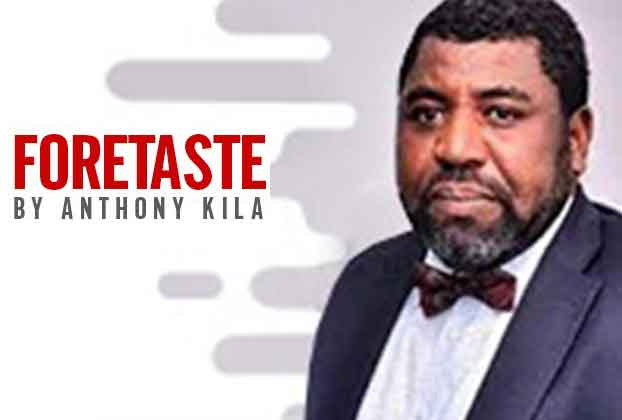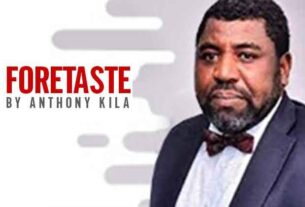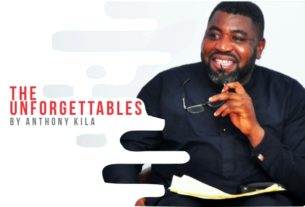Dear Readers
Books are like babies, they come into the world arriving as joy and full of hope for their parents and their well-wishers, for all, they also come with the possibility of making history and the certainty of affecting some lives, the fate of books though like that of babies depends ultimately on how the environment deals with them. There is a new book in town titled “Nigerian Public Discourse: The Interplay of Empirical Evidence and Hyperbole”, written by a lawyer, former governor of Lagos state and former minister of the republic, Babatunde Raji Fashola (SAN) known to us in Lagos as BRF. It is a collection of essays arranged in sixteen chapters that cover crucial and topical issues about Nigeria from fiscal mechanisms to law and order to data management to issues about out-of-school children to those of housing to poverty, to electricity and power to the comparison of efforts and achievements of Nigeria juxtaposed with other countries, to legal analysis of the constitution to the conundrum of minimum wage to issues of citizenry to governance and protocols, the power and influence of a president to restructuring and of course the reinvention of Nigeria.

I have taken our time (mine and yours) to list these topics in a bid to ensure that you are convinced that Babatunde Raji Fashola’s book is worth reading based on content and by that, I mean topics treated and mode of treating them. The book is a very personal narrative that is unapologetically built on and framed around the education, exposure and experience of Fashola the writer. I say unapologetically because Fashola himself acknowledges that others might disagree with his views and accounts but like a good student of Aristotle, Fashola makes his case and challenges those that can to make their own case and those willing to learn to take valuable lessons from his own education, exposure and experience.
No need to pretend, I have known BRF for over 40 years, it would be hyperbolical (borrowing a word from the new author in town) to say we are friends but it would also be dishonest to pretend as if I am neutral to Fashola, of course I like BRF and I think he is one of the very few good ones of the many bad politicians we have in Nigeria and in the world. On a personal note, when I heard that BRF’s book was published I quickly requested for it and I think it is safe to say I am one of the first people in Nigeria to get the published version of BRF’s book. I know Prof Wole Soyinka, Alhaji Femi Okunnu, Supo Shasore and some other notable Nigerians have read this BRF’s book too but I doubt they read the published version before me. Allow me to publicly thank the resourceful person that got me my copy and to keep the name private for now.
On a personal note, as I was saying, my initial thought was that BRF’s book would be an account of his stewardship and justification of his actions and inactions in government as governor and minister. Knowing the man, I was however sure that BRF’s book will neither be a fluffy account nor a eulogy of power and position. I was also certain that the prose will be well arranged and worthy of anyone with good taste. I was however rather surprised and impressed to see that unlike most politicians or public servants turned writer, BRF did not try to explain, exonerate or praise himself. In his book, BRF takes the helicopter view and tackles methodological and institutional issues and he does these by challenging observers and by offering useful tips for future policy makers.
Observers are the analysts, opinionists, journalists, consultants and other influencers whose voices and pens (or shall we say keyboards) matter in society and who therefore can make many people believe whatever they say or write, be it true or false. BRF’s book warns and challenges these observers to use accurate, updated and verifiable data and facts in their analysis and to be rigorous in expressing their public views on national issues. He challenges them to move beyond common places and away from unverifiable claims and to move towards logical and factual positions.
To policy makers, be them law makers, governors, ministers or local government administrators BRF’s book sends an invitation to build their policies and actions on data and research into any issue they intend to deal with. He warns anyone in position of authority or duty to understand that understanding the question very well before trying to provide an answer is a crucial step as a bad understanding of the question or issue to address is a sure foundation for erroneous answers and wrong solutions. BRF’s book in many ways teaches policymakers to plan and implement not based on assumptions or hearsay but to dig deep and to analyse before formulating or implementing policies.
Those who truly care about systems and institutions will find BRF’s book a very worthy monograph because he dares to talk about values and citizenry. Unlike most politicians that shy away from it in their public accounts, BRF found the clarity of vison and the courage of voice to talk about the duties of citizens and he explores some essential features of modern citizenry. BRF’s book boldly and clearly calls out the elephant in the room: Unholy demands and expectations of citizens from public officeholders. BRF’s book uses personal examples and theoretical but easily identifiable ideal types to show us how citizens can lead public office holders astray through sycophancy, conferring titles of all sorts on them, make them chairmen of events etc.
BRF’s passion for good governance and his patriotism radiate from every page in his book and it will take a lot of bias to discount that. BRF’s book is worthy of reading as it will be no doubt a useful tool and discussion point around which analysts, politicians and citizens can gather to ponder on and discuss about societal issues. Undoubtedly, some of the discussants like me will argue that, like in any other society, leadership is the main problem with our society. The fish rots from the head…
Now that BRF has become a writer, we have the right to ask him to say and write more about the duties and required features of leaders in a society that wants to progress. To affirm our right on BRF, I propose we read this new book and talk about it, that way, he will know we read and we, in return, can insist he writes more.
Join me if you can on twitter @anthonykila to continue these conversations.
Anthony Kila is Institute Director at CIAPS. www.ciaps.org.








